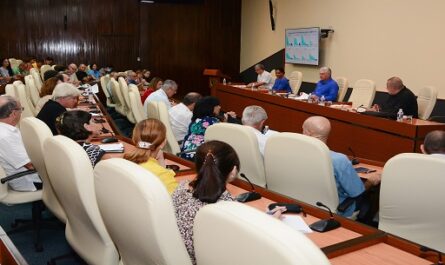Cuban Republic Attorney General’s Office will maintain an Interoperable Administrative Registry with real-time information on violent deaths of women and girls for gender reasons, media outlets published on Sunday.
Proposal for this tool was presented the day before during the final session of the VII Plenary Session of the Central Committee of the Communist Party (CCPCC) which, among other topics, examined actions to address gender violence.
The Attorney General of the Republic, Yamila Peña, explained that since 2020, work has been done more intentionally on these issues from a comprehensive perspective, with a social focus and not as a problem between and for women.
Peña reported in the plenary session that at the end of October, 117 cases of violent death of women were reported, with predominance of cases in the provinces of Matanzas, Havana, Santiago de Cuba, Granma and Guantanamo.
The head of the Prosecutor’s Office stated that 75 percent of these phenomena occurred in homes shared by couples.
Meanwhile, 70 children and adolescents were left motherless after the death, reports the Cuban News Agency.
Faced with these realities, Cuba strengthens its National Program for the Advancement of Women (PAM) that identifies and corrects all types of discrimination present in society.
In this sense, the member of the Political Bureau and general secretary of the Federation of Cuban Women (FMC), Teresa Amarelle, highlighted the approval by the Council of Ministers of the Protocol for action against labor discrimination.
The legal body, presented by the Ministry of Labor and Social Security, rejects and demands measures against violence and harassment in work groups, which constitutes a transcendent step in addressing gender violence.
Amarelle reported the number of family units that live in situations of violence is 9,579, and 16,116 women and girls reside in them.
She added that of the female people over 15 years of age who live in a situation of violence, 60 percent are black and mulatto, and with an average of ninth grade education.
Transforming “modes of action and eliminating the causes and conditions that generate gender violence in these families is one of the objectives of the increase,” said the general secretary of the FMC.
The results obtained indicate the need to design comprehensive care from groups in coordination with social and community agents, which allow personalized treatment for each case, Amarelle warned.
For her part, Deputy Prime Minister Ines Maria Chapman considered that the execution of the registration, monitoring and attention of these cases as very important, and pointed out that the greatest complexity is at the territorial and community level.




